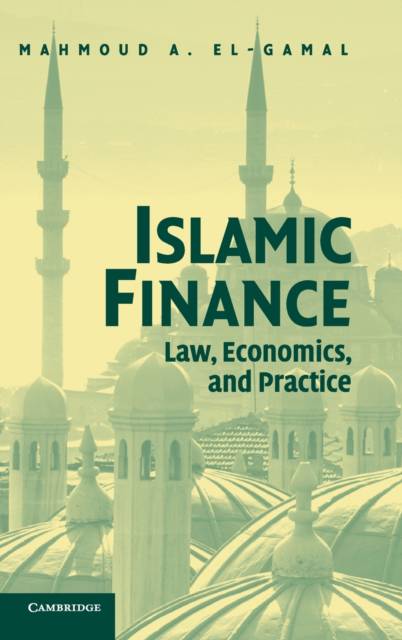
Door een staking bij bpost kan je online bestelling op dit moment iets langer onderweg zijn dan voorzien. Dringend iets nodig? Onze winkels ontvangen jou met open armen!
- Afhalen na 1 uur in een winkel met voorraad
- Gratis thuislevering in België vanaf € 30
- Ruim aanbod met 7 miljoen producten
Door een staking bij bpost kan je online bestelling op dit moment iets langer onderweg zijn dan voorzien. Dringend iets nodig? Onze winkels ontvangen jou met open armen!
- Afhalen na 1 uur in een winkel met voorraad
- Gratis thuislevering in België vanaf € 30
- Ruim aanbod met 7 miljoen producten
Zoeken
€ 180,45
+ 360 punten
Uitvoering
Omschrijving
This book provides an overview of the practice of Islamic finance and the historical roots that define its modes of operation. The focus of the book is analytical and forward-looking. It shows that Islamic finance exists mainly as a form of rent-seeking legal-arbitrage. In every aspect of finance -- from personal loans to investment banking, and from market structure to corporate governance -- Islamic finance aims to replicate in Islamic forms the substantive functions of contemporary financial instruments, markets, and institutions. By attempting to replicate the substance of contemporary financial practice using pre-modern contract forms, Islamic finance has arguably failed to serve the objectives of Islamic law. This book proposes refocusing Islamic finance on substance rather than form. This approach would entail abandoning the paradigm of "Islamization" of every financial practice. It would also entail reorienting the brand-name of Islamic finance to emphasize issues of community banking, micro-finance, and socially responsible investment.
Specificaties
Betrokkenen
- Auteur(s):
- Uitgeverij:
Inhoud
- Aantal bladzijden:
- 240
- Taal:
- Engels
Eigenschappen
- Productcode (EAN):
- 9780521864145
- Verschijningsdatum:
- 3/07/2006
- Uitvoering:
- Hardcover
- Formaat:
- Ongenaaid / garenloos gebonden
- Afmetingen:
- 165 mm x 232 mm
- Gewicht:
- 467 g

Alleen bij Standaard Boekhandel
+ 360 punten op je klantenkaart van Standaard Boekhandel
Beoordelingen
We publiceren alleen reviews die voldoen aan de voorwaarden voor reviews. Bekijk onze voorwaarden voor reviews.











